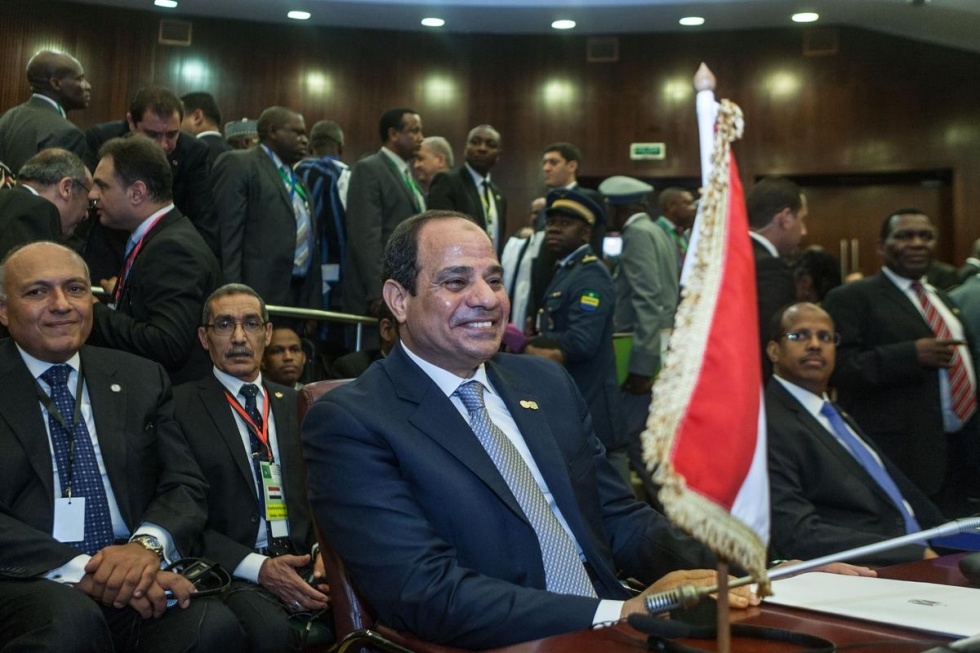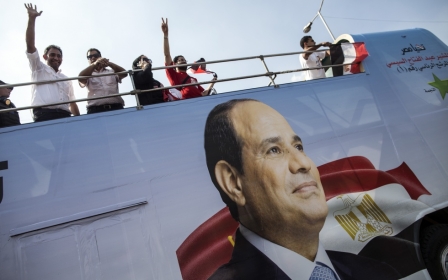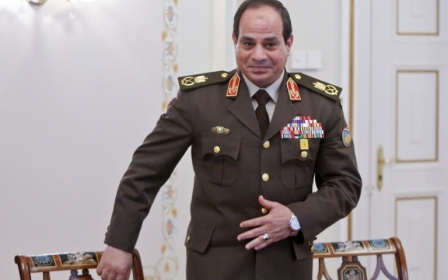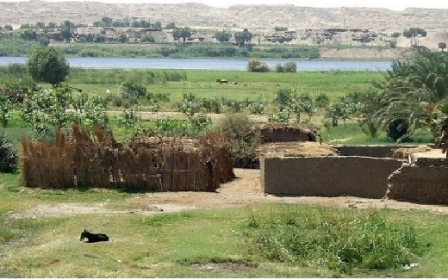Sisi: Massive investment needed to fix blackouts

President Abdel Fattah al-Sisi urged Egyptians on Saturday to be patient in the face of power cuts, two days after a major disruption in Cairo, saying massive investment is needed to fix the problem.
Throughout the summer, Egypt has suffered power blackouts caused by rising demand for fans and air conditioning in the sweltering heat and by a shortage of fuel to run generating plants.
On Thursday, a huge power outage blacked out most of Cairo, causing major disruption across the city of some 20 million people at the height of the morning rush hour.
Addressing the situation, Sisi said the electrical power sector "needs colossal investment," adding that "we must all understand that this is not something that can be solved overnight."
He told people they must be patient regarding a problem that "has not been dealt with for several years."
Successive political crises since the early 2011 ouster of longtime president Hosni Mubarak have frightened off tourists and investors and brought the economy to its knees.
Power shortages were a factor contributing to massive street protests that led to the July 2013 ouster of Islamist president Mohamed Morsi by the military, headed at the time by Sisi.
Last month, the interior ministry said it had arrested 40 pro-Morsi activists, accusing them of carrying out attacks on electrical power infrastructure.
The rolling blackouts come amid an energy crunch linked to shrinking revenues, depleted natural gas resources, lack of maintenance on debilitated power plants, and the government's inability to pay its debts to foreign oil companies.
The power outages are a "result of cumulative under investment over many years; successive governments have failed to invest in power generation and in transmission lines," said Nick Butler, chair of the King's Policy Institute at King's College London.
"The power cuts are due to years of neglect and the government's inability to import enough fuel," he added.
Indications of the crisis were apparent at least 10 years ago, if not 15, Mohamed El-Sobky, an electrical power engineering professor at Cairo University, told MEE.
He says the problem is three-fold: bad maintenance, lack of fuels and high and inefficient consumption of Egypt’s energy supply.
“According to the national control centre, one of the major transmission circuits in the network was suddenly overloaded due to an operational error, causing the network to trip,” said El-Sobky of the latest outage.
“Because the system is already critically balanced, the network could not withstand this human error because protection elements used to isolate a faulty part of the network could not function,” he explained.
“Eighteen to twenty percent of Egypt’s capacity is inaccessible due to bad maintenance. Several power stations are not operating at their full capacity because of this. But in order to attend to the power stations and carry out the maintenance work, they must be stopped – a luxury Egypt cannot afford at the moment,” El-Sobky said.
Egypt was not always short of gas. Between 2005 and 2012, Egypt sold gas to Israel at some of the lowest natural gas prices in the world in a sweetheart deal that benefitted Egyptian and Israeli elites, as MEE has reported.
Unable to provide gas as agreed in its deal with the Israelis, the Egyptian government is now being sued by vairous companies and individuals along the supply chain.
Meanwhile, Israel has discovered two major offshore oil fields in recent years giving the country enough gas to last for decades while also selling export surplus - and potentially, in a reversal of flow, to Egypt.
In late August, it was reported that the two countries were finalising a deal that could mean the sale of $60 billion in Israeli natural gas to liquefication plants in Egypt.
Middle East Eye propose une couverture et une analyse indépendantes et incomparables du Moyen-Orient, de l’Afrique du Nord et d’autres régions du monde. Pour en savoir plus sur la reprise de ce contenu et les frais qui s’appliquent, veuillez remplir ce formulaire [en anglais]. Pour en savoir plus sur MEE, cliquez ici [en anglais].




